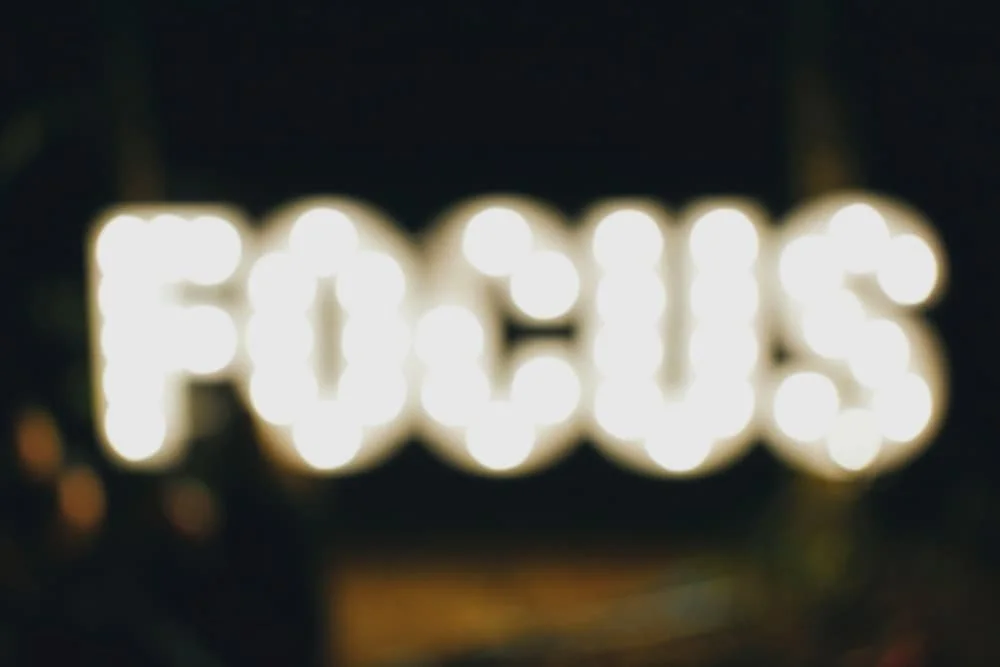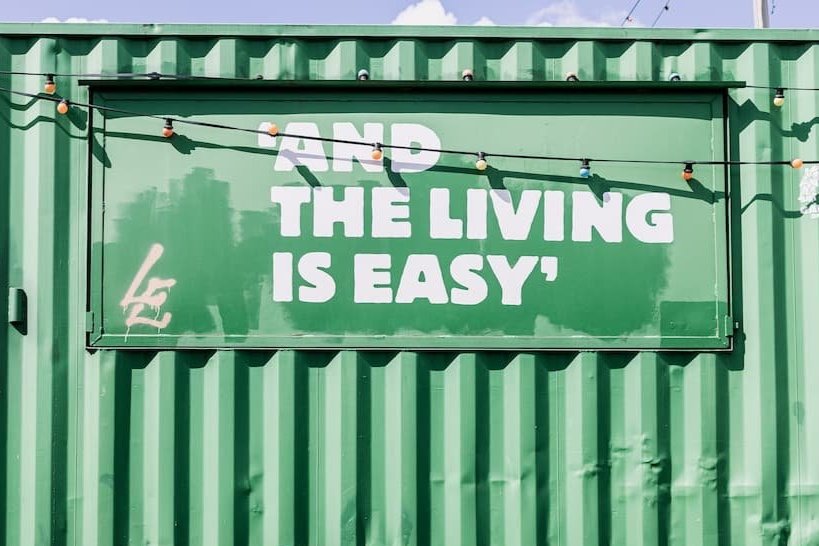7 Habits of Highly Effective Career Changers
Career change can be a slog. Anyone who tells you it’s quick and painless is straight-up lying.
Let’s get real about the challenges for a minute.
First you have to figure out what you want to do, a key step that derails the majority of people before they even start.
Then you have to go into the world and make it happen. This likely includes wrong turns, dead ends, and course corrections—not to mention the indignities associated with networking, applying, interviewing, and negotiating—all while you’re battling self-doubt and questioning whether you’ll ever find a career you love.
Yet people change careers successfully every day despite these challenges.
How do they do it???!!!
When it comes to keeping momentum, there are certain behaviors that successful career changers employ.
It starts with habits.
I’m not talking about productivity habits, like cutting out distractions or reinvigorating your morning routine. Those are great, but not what we’re talking about here.
The career change habits I’m talking about are bigger than that.
They’re mindsets and approaches designed to help you stay the course in the most challenging of times: when your brain is telling you that maybe your current job isn’t so bad, your dream job doesn’t exist, you’re not ____ enough to get it done, and you should just quit trying already.
You’ve probably heard of the importance of grit and courage. But you’re not born with those qualities and you don’t just magically will them into being.
The path to career change success starts with a set of beliefs and continues with the commitment, practice, and discipline to uphold them.
Here are 7 habits of highly effective career changers that will help you keep momentum and stay sane throughout your career change.
Habit #1 – Career Change Is a Roller Coaster, Not a Death Spiral
Successful career changers know that things go wrong…and that they’ll get better.
They don’t quit because something doesn’t turn out as expected. They don’t make decisions based on a bad day or week or month.
They know career change is a roller coaster and not a death spiral.
Accept that your career change will have ups and downs. There will be times when you’re discouraged and questioning. Accept the inevitable pitfalls on the path to something better.
Let’s say you’re headed on the trip of a lifetime to Bali. You’ve planned to the last detail.
Day 1. Your flight gets delayed. You miss your connection. The person next to you coughs on you the entire flight without apology. You arrive to your dream destination exhausted, angry, and questioning what else could go wrong. Then the airline loses your luggage.
While it’s certainly not the start you envisioned, do you cancel the trip and head home? Do you stop traveling altogether? Of course not.
You continue your Balinese adventure.
You know that bad things can happen when you travel.
You also know that travel is a gateway to adventures and surprises you couldn’t have foreseen. You know there will be misadventures, and you do it anyway.
Your career journey is no different.
There will be delays and unexpected results. There will also be opportunities that you didn’t even know existed and options you couldn’t have made up if you’d tried.
When unintended results happen, it’s okay be sad, mad, annoyed, or all of the above.
Feel the feelings, then look for the opportunity.
You wouldn’t cancel a trip because of a bad flight, so why would you give up on your career change because of a bad day?
This habit isn’t about staying relentlessly positive in the face of failure or bad news.
It’s about riding it out because there’s success and good news ahead.
--> Read: Why Positive Thinking Doesn’t Work
Habit #2 – New Career ≠ New You
You can run from your job, but you can’t outrun yourself.
I’ve tried.
We infuse our career change with expectations about what we’ll feel, do, or be.
Changing careers doesn’t mean you’ll suddenly be more confident, make time for the gym, or start that hobby you’ve been putting off.
If you’re putting all those expectations on your career change, no wonder it feels impossible.
People are often unpleasantly surprised to find themselves facing the exact same challenges they were trying to escape. Because the one constant is THEM.
In my corporate career, I worked long hours and obsessed over small issues.
When I started my business, I worked long hours and obsessed over small issues.
Because I was still a workaholic.
I changed EVERYTHING external about my life. It wasn’t enough—until I addressed the root cause...ME.
The key to working less had nothing to do with externals. It was understanding what was driving my workaholic tendencies, then building in daily habits and discipline to stop working so darn much.
Decouple your job from the work you want to do on yourself.
Of course there’s intrinsic value in a role or organization that’s better aligned to what’s important to you.
But a new job is not a panacea.
If you want to be more confident, don’t make it dependent on a bigger paycheck. Work on your confidence now.
It will make life more enjoyable today, attract that higher-playing dream role faster, and set you up for success once you land it.
Just imagine how a more confident you now can propel you into the future.
What do you expect to feel and do differently when you’re in a better career? How do you want to lead in the future? Be that leader today. No job can prevent—or make you—who you wish to be.
--> Read: Career Change Is Hard…But Not In the Way You Think
Habit #3 – Your Career Change Is Your Job
Your current job is no longer your job; it’s your side hustle.
Smart career changers know that their career change comes first. It’s the most important thing.
Maximize the time and energy you give to where you want to go.
Ask yourself:
How can I leverage my current job to get me to my new career as quickly and easily as possible?
Get in the habit of running every decision, interaction, and to-do list item through the filter of how it advances your career change.
So…Is it worth it to you to work late for the next 6 weeks to finish that project? The answer could be yes, no, or something in between.
The key is to consciously evaluate the choices you’re making in your current job to align them with where you want to go.
This includes refusing to give life to relationships and activities that deplete you outside of work. Disengage. Put your precious time and energy towards your future.
And, no, this is not about spending 40 hours—or even 20—on your job search. That kind of time is not necessary, not to mention exhausting. If you’re employed, the bulk of your time will necessarily go to your current job…because they’re paying you.
Instead, be smart about how you’re working for them so that it also works for you.
--> Watch: 3 Habits To Achieve Your Career Goals (This Year and Beyond)
Habit #4 – If Career Change Is Your Job, Plan Your Vacation
Already treating your career change like it’s your job? Great. Now plan your vacation.
I worked with a woman who, upon returning to the office in the new year, would take the list of corporate holidays and block out her vacation time for the full year. Now that’s a habit I can get behind.
Taking downtime seriously is a mentality that will help you succeed in any career or career change.
A lot of folks take an “I’ll sleep when I’m dead” approach to their careers. They assume that their new job will bring relief.
Successful career changers recognize that a great job is not the same as a vacation—no matter how amazing it is. And starting a job when you’re already depleted is not a recipe for continued success.
You need breaks, so build them in. And be prepared to take impromptu personal days. We all need them.
If you’re feeling exhausted or uninspired, it’s okay to take your foot off the gas. Refill before you run out entirely.
Hitting it harder is just going to create tension between you and the career you want to create.
Give yourself permission to not work on your career change for a set period of time, then truly disconnect, so you can return with renewed clarity and energy.
Habit #5 – Successful Career Change Centers Around People
Smart career changers cultivate relationships with people that keep them challenged, happy, and engaged.
They build a habit of nurturing relationships. They look for strong leaders who understand talent. They build their networks up, down, and sideways.
They don’t waste time scrolling through job postings. They seek out people, at all levels, with the skills, values, and behaviors they respect.
Look for great leaders, like-minded co-workers, and happy teams as hard as you look for a great role.
True leaders know how to map your strengths to the work that provides them the most value—even if that means creating a new role or modifying an existing one. It's a built-in win-win, and a much quicker path to a role that fits you.
Regardless of where you are in your career, whether you’re actively looking or not, make it part of your regular day to help and be helped, deepen connections, or just say hello.
-->Watch: Still Hate Networking? The Simple Shift That Will Transform Your Networking Conversations
Habit #6 – Feel the Love
What’s perhaps the most important factor in staying motivated and engaged during a long job search? Appreciating things as they are.
Embrace your current situation and where you are in the career change process.
It sounds counter-intuitive, I get it.
You might really hate your job, and it objectively might be terrible, but it serves a purpose. Take a minute to appreciate that purpose:
Does it pay your mortgage? Allow you to afford great vacations?
Maybe the current culture is teaching you about your values. What else is it teaching you?
What if you were thankful for that org change or your challenging boss because it’s the kick in the pants you need to finally leave?
This is not about telling yourself that your situation is great when it isn’t. It’s about appreciating the things that work for you rather than railing against the things that don’t.
If you lead your job search out of fear, anger, and desperation, what do you think you’ll find?
Rather than stewing in why you hate your job or getting frustrated about how long the job search is taking, shift into what purpose it’s serving. Then build on that.
You may think anxiety or anger fuels you, but it acts like a fog that prevents you from seeing opportunities.
And you’re also telegraphing that energy to those in a position to support you.
Consider the message it’s sending and determine what you want to communicate instead.
--> Read: Audacity of Belief: What Successful People Know That Others Don’t
Habit #7 – Remember the “You” in Your Career Change
High-achievers tend not to look backward. They keep their eye on the prize. This strength can easily become a blindspot.
In addition to tracking the tangible steps you’ve taken—track your growth.
Your growth transcends any single external step you take.
Take time to look at the real and self-imposed roadblocks you’ve overcome to get this far in your career change.
Give yourself credit for how far you’ve come—and all you’ve learned in the process.
Savvy career changers regularly acknowledge their growth and celebrate self-improvement as much as external accomplishments.
They recognize that what they love about the present is a product of what they at one point worked so hard to attain, and that they’re actively creating what they want in the future.
They concern themselves less with the outcome of an important conversation and more on celebrating how they showed up in that conversation.
They celebrate turning down opportunities that aren’t right for them because they recognize their confidence has shifted.
They realize their old self would have taken the role—any role—out of fear. Their new self has the commitment to keep going until they find the right role.
Check out these quotes from career changers I’ve worked with:
“I’ve started to be able to make tough decisions for myself, which I would never have done before.”
“I know now that I'm absolutely capable of making career changes.”
“I feel like I can achieve my dream lifestyle.”
“I learned so much about what I enjoy and what I don’t enjoy—and today I’m feeling like there is limitless possibility.”
“I feel confident networking with a clear story and vision of who I am and the value I bring.”
These are powerful shifts that go far beyond career change.
At one time, the career and life you wanted might have seemed like an impossible dream.
Focus on the shifts in your beliefs and values that now make it possible—and how your diligence, passion, and determination are drawing it closer.
Career changes don’t just happen. You create them. Give credit to yourself.
7 Habits To Stay Motivated and Sane During Your Career Change
We’re lucky to live in a time where it’s encouraged to innovate and create and evolve in our careers. When this is the rule and not the exception, it’s imperative to build in success habits that sustain you for the long-term and keep your mental game strong.
To learn more about how these 7 habits of highly effective career changers work in practice, check out my free guide The 4 Steps to Take Back Your Life and Design a Career with Purpose. You’ll learn how to get clear on what you really want, identify the inner blocks that are holding you back, and create the critical components of a career roadmap to help you go after it.
Ready for a career that matches who you are?
Grab the free guide: 4 Steps to Take Back Your Life and Design a Career with Purpose
Learn how to work through the right options for you and find opportunities you didn't even know were possible.
Author Bio:
Before becoming a coach, Caroline worked in management consulting and financial services. She's made it her mission to help people grow, contribute, and get wherever they want to go.
She’s also a tennis fanatic, aspiring Minimalist, FIRE (Financial Independence and Retire Early) enthusiast, and Aloha Spirit seeker 🤙. She loves to share stories from her unconventional life and career focused on freedom, creativity, fun, health, family, and community. If she can do it, you can, too.
The life and career you want is possible once you have the roadmap. Take the first step by downloading her free guide: 4 Steps To Take Back Your Life and Design a Career With Purpose.
































